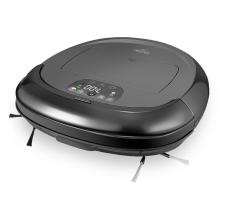Industrial Robotics has improved the manufacturing process by applying automation in many different sectors. The automotive industry has been an early adopter of robotics for performing many different tasks in the assembly process of a vehicle. As improvements in robotic technology provide more capability to these machines and labor disputes increase, manufacturers around the world are looking at robotics to perform most if not all of the functions previously performed by humans. Even in China, where labor is relatively cheap, companies have been increasing the number of robotic units.
When Moore's Law is applied to robotics, the prospect is somewhat unsettling for human labor force. The advance of algorithms and raw processing power is increasing at such a fast rate, a robotic labor force will eventually be the preferred choice for manufacturers. Even at this stage of development, industrial robotics is experiencing robust growth, limited only by the initial cost of investment.
The biggest driver for robotics in manufacturing is increased labor costs around the world, and this is especially true in countries where manufacturing has been the biggest driving force for economic development. These countries grew by providing cheap labor for the global economy, but as they start developing, the labor force begins to demand increased wages. Termed the Lewisian or Lewis turning point, named for economist Sir William Arthur Lewis, it shows why even developing countries won't be able to sustain cheap labor; thus, their eagerness to start adopting robotics into their labor force.
Automobile manufacturers have 100 percent robotic work forces on many different segments of their assembly line including welding, painting and assembly. So it begs the question, are any jobs safe from the innovations we make? The answer is no; pharmacists, lawyers, soldiers, drivers and even reporters could eventually be replaced by robots or automated systems that will be able to perform these functions without time off, insurance, labor disputes and many of the issues business owners would gladly do without.
While cost has been the biggest consideration for implementing industrial robots, Rethink Robotics has overcome that obstacle for companies by introducing a very affordable system. The company is able to set up what generally takes months and hundreds of thousands or millions of dollars in only hours and a little more than $20,000.
Replacing the human factor in labor will create many problems, but eventually new opportunities will be created for us, by us or by the robots.





